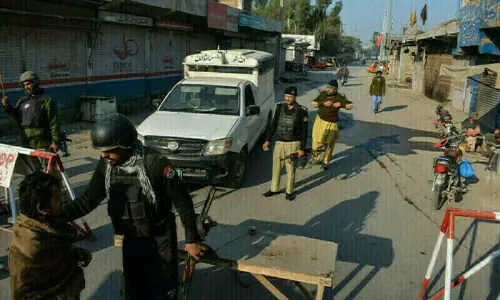Whether it is Cham cham or Machli ka bacha, we all, to this day remember the rhymes we learnt as little children. Even a hint of their tune brings a smile back to your lips. Some of these poems were even part of our formal education. The memory of singing them with friends, family members and fellows come rushing back instantly.
Nursery rhymes are more stanzas than joyful verses or lullabies. These poems conceal powerful social messages. The messages conveyed through them subconsciously play an important role in constructing and shaping the behaviour of those who listen or recite them. Specifically, these poems when taught at the age of three or four years have a more powerful impact. Children under the age of seven years are in a pre-operational learning phase where they are unable to rationalise things. They conceive social messages through sensory motor skills such as listening, observing or talking rather than rationalising.
Unfortunately, we rarely think about the messages communicated through rhymes. Since decades, we are carrying forward the tradition of singing them without paying any attention to what is really being said in these rhymes. If scrutinised carefully, there are certain rhymes which convey gender-biased opinions. For instance, the poem Piyari baaji, on one hand, appreciates the caring nature of elder sisters but on the other it talks about what society expects from the elder daughters in a family.
Similarly, in Machli ka bacha, the child goes on a fishing trip with his father and brother while the mother cooks and serves the fish to them.
Jab hum chottey the, ammi maarti thi hum rotey the … is another gender-biased piece of nursery rhyme. To my knowledge, this particular poem brings about several contentious aspects of gender roles in a family. On the outset, mothers are shown as being insensitive towards the needs of their children. She beats them even when they cry. But from a different perspective, it also appears as if the mother is concerned about disciplining them.
Other poems including Cham cham and Tot batot holds women responsible for disturbing the life of husbands. Though, it is commonly believed that marriage significantly changes the life of an individual, it is biased to say that it changes the life of men only. Both men and women are required to adjust their individual routines for a happily married life. Unfortunately, compromises on the part of women are often overshadowed by undue expectations from women by society.
Thus these poems need some attention. Though the perceptions of Pakistani society about genders and woman, man, mother, father, sister, brother, bride and groom and marriage is changing, the poems still convey a biased message. The tradition of reciting the poems in a singsong manner has resulted in overlooking the messages being conveyed through them. Since verses or poems stay in our memory for a long time they are powerful tools of conveying social messages. Therefore it is important to evaluate their content specifically of nursery rhymes.
The rhymes also call for attention of educationalists and curriculum developers to introduce new messages in nursery rhymes. If the Pakistani society really fancies gender equity, nursery rhymes could be a way of revolutionising the social attitudes and behaviours of our people.


































